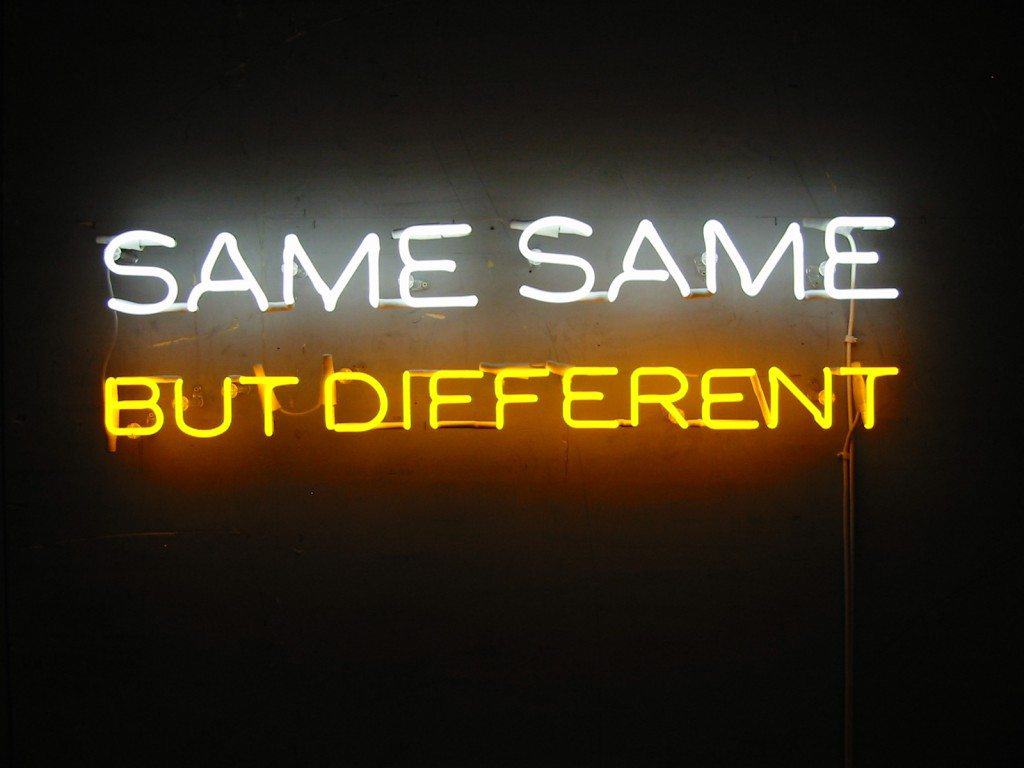Further to the first article on becoming a recruiter, here is further elaboration as I take you into a deeper dive into the recruitment industry.
Being a Recruiter is more than just connecting great people with great jobs.
Everybody would like to shake the hands of a Recruiter, as they typically have access to some of the hottest job opportunities.
But it is not a simple as that.
There are many breeds of Recruiters and many avenues for an aspiring Recruiter to travel.
We take a look at some of the ‘verticals’ which a Recruiter can develop a career and where that job can go:
SME or MNC?
This debate is very relevant in the Recruitment industry.
We have big MNCs such as Adecco, Randstad, Manpower, Hays and other firms bragging their MNC status.
These large companies have rich resources, and a headcount of a small country (okay, maybe a province).
They serve other MNC clients and take orders like a whale gulping school of fishes.
They are large, omnipresent (almost) and gives an excellent brand name on your resume.
Also, to their capabilities to conduct mass recruitment drives, they also have an established candidate database to tap into.
Their very good brand name will mean that it is easier for you to approach candidates.
Chances are they would have heard about your MNC recruiting company.
They will also have resources to make beautiful corporate gifts for your Clients.
You might also get to work in a posh office with a very centralised address that comes with a proper pantry, hot coffee and all the paper you need to print.
Any new, aspiring recruiter will want to knock on their door and start a career with them.
They have a great career path, structured learning and development channels, professional development, a potential to get a regional exposure, and, of course, work with established MNC clients.
Why SME?
Since MNC recruitment firms are so good, why do so many other SME-styled Recruitment Agencies exists?
And why would any young aspiring new recruiters want to join these boutique firms?
What are their advantages?
Before we get to that, let’s get a little specific, in our context any ‘SME’ or ‘Boutique’ Agency are between 11-50 headcount strong and has an unyielding local presence.
We are talking about Singapore firms such as AYP Associates, RecruitPlus, Primestaff, GMP and other much smaller companies.
Recruitment is a tough people-to-people building business
Smaller companies give that range and freedom for a Recruiter to develop and shape a very close relationship with both the Clients and Candidates.
This is usually the case where the Recruiter has to handle both ends of the spectrum.
Larger firms tend to separate the Client facing role from the Candidate meeting one ( a little bit more about that later) since they have the resources and manpower to split the function.
Which means you have more say and control in almost all aspects of your Recruitment job within a smaller firm.
You will have to be cost conscious as well and make sure you bill to cover your expenses.
Think of it this way, a small recruitment agency is like a dragon boat, all 12 people have to row.
The oarsman (usually the boss) will decide the direction and manage the morale.
All on board have to paddle as hard as everybody else. There are no rooms for slackers in a smaller setup.
Some of these Boutique Agency bosses themselves hailed from larger MNC Recruitment Agencies.
They bring with them a vast amount of experiences any new Recruiter can tap into.
They can mentor, coach and groom, giving more depth and quality to a budding Recruiter’s career.
They are sometimes Subject Matter Experts in their respective domains and they often get insights into industry player shake-ups and movements.
Recruiters working for them might get to work on confidential/ retained roles (often with high billings); building experience and lessons learned to handle such sensitive positions.
Types of Recruitment Agencies
Generalist
Some firms do everything.
They have their values, as their Consultants are Jack of All Trades.
Throw them an Engineering role, they can close. Give them a Pharmaceutical role, they will find the candidates
Shoot them with Finance? No problem. Human Resources, bring it on!
They offer an excellent baseline platform for any Recruiter to learn the tricks of the trade, and build a powerfully wide range of networks, across functions and industries.
They thrive by spreading their risks.
If the Banking industry takes a hit, they have Oil and Gas job orders to work on.
And if that industry crashes, they can work on placing Oil and Gas Finance candidates in a finance role with a manufacturing company.
Recruiters in such firms are very resourceful people who can think on their feet, connect the dots when there are none ( they will draw their dots).
Think of them as a Recruitment 7-Eleven, they sell everything.
Specialist Recruiter
On the other spectrum, you have the specialist recruitment agencies.
They only focus on a particular segment that they believe they can dominate in.
So you have Evolution that only do IT; Spencer-Ogden that only touches Oil & Gas and Marks Sattin that doesn’t recruit outside of banking.
If you are already a mid-career professional and wake up one day with an idea of a career switch to Recruitment, look at firms that allow you to tap on your previous career incarnations.
For example, if you are a Finance person, and you want to go into Recruitment, find a firm that deals with Finance and Accounting recruitment.
If you are a banker, find a Banking arm in a Recruitment firm.
This approach will give you a greater chance of succeeding in a budding Recruitment career since you already come with some specialised functional, industry knowledge.
You probably will know people in the Finance industry who can become your candidate.
And if you are doing a 360 role, some of your former peers can become your Clients, this will shortcut your entry and push you to jump start a career in recruitment.
Different Roles Within a Recruitment Agency
End-to-end Recruiter
The other word is ‘360’; you do everything on both Client and Candidate side.
That will mean the Recruiter will have multiple balls to juggle (with more thrown into the fray).
The Recruiter will need to find their clients (cold call, networking), get the job orders, negotiate the Terms of Business, do their industry mapping, research, find, hunt, beg, borrow, steal candidates, talents, recommendations to close the order.
In some cases, they become Debt Collectors if Client fails to pay the placement fees.
If there is any Client complains, you have to deal with it.
If there are any invoice errors, you have to deal with it.
While it does gives an incumbent Recruiter an excellent exposure, some of these 360 roles can be overly complicated.
A Recruiter will be swamped by the myriad of hats to wear just to close a deal, but end up losing it.
So in many larger firms, they split the functions up.
Their Recruiters can focus on Recruitment as a function while the Business Development folks work on developing the Recruitment as a business.
Sales/ Business Development
The dedicated Business Development(BD) unit hunts to bring in new Clients.
With new Clients, comes new job orders.
These BD folks are not really ‘Recruiters’ since they do not close the job orders they brought in.
They are more like advertising salesmen: They sell a pitch, the Recruitment Company’s brand, and capabilities.
They do not necessarily need to know how to ‘do’ the recruitment job, they just need to know how it is done.
Sharp BD units do more than sell.
They will map industry, find out their competitors, talk to decision makers and develop specialised industry knowledge.
Sometimes MNC clients will have an annual bidding process to establish a PVL(Preferred Vendor List).
The BD unit is the ones who pitch for such tenders and all the excessive paperwork (instead of the Recruiters themselves) to bring the jobs in.
Those Clients they bring in are sometimes called Accounts, and these BD folks will become the Account holders, thus forging the relationship between the Agency and the Client.
With such an approach, a Recruiter might not have control over the orders the BD unit bring in unless you work very closely with the BD group.
Sometimes the BD folks promised their Clients the sky without telling you.
You will be pressured to fulfil roles that are not in your specialization.
As a Recruiter, you will lose that intimacy with your clients. Hence, you might not be able to sell the position to your candidates in greater details.
Sourcer/Researcher
In a highly specialized setup, you would also get a function known as Sourcer or Researcher.
What they do is to actively uncover and connect with passive candidates who are very suitable for the job opening but isn’t actively looking out in the job market.
They will use a combination of phone calls and boolean search to gather crucial information that helps them map out the organisation chart of a company, or simply letting them know who to call.
Once a target or targets are identified and qualified, the candidate will be handed over to the Recruiter for further screening and assessment.
Not Forgetting The In-House Recruiters (Talent Acquisition)
Although this write-up discusses Agency Recruiters predominantly, there are also In-House recruiters working with and are directly under the Company’s payroll.
These folks are a slightly different breed from Agency Recruiters and are often the preferred career paths for many Agency Recruiters; since it offers a few advantages.
In-House Recruiters are not sales driven
That means you do not need to worry about billing, looking for larger placements to build your sales pipeline; you will go from a ‘profit centre’ role to ‘cost centre’ role.
So instead of worrying about the Billings, you worry about hiring budgets. If hiring a person will burst your budget for the year.
You will also need to control the use of External Recruitment Agencies since their professional fees will eat into your hiring pockets as well.
The hunter being hunted
You do not need always to hunt for new clients or do cold calls.
Of course, the other side of the spectrum is that your salary is likely to be fixed (and stable).
That said, you will probably miss out on getting a high commission an Agency Recruiter will get for closing a large deal.
You also cannot ‘cherry pick’ your roles.
If your company have a Temp Logistics Assistant role, you will have to do them as well.
And since you cannot cherry pick your openings, you will have to close them no matter what.
Agency Recruiters sometimes have the luxury of choosing the Clients and work with Tier One Clients who are giving the better orders and billing.
As an Internal Recruiter, everyone in the company, HR, Finance, Sales, Engineering, Logistics, IT, down to the Cleaning Supervisor is your Tier One Client.
And you have to feed them all, as they will hunt for you to fill their empty headcount hole.
It can get crazy.
Company Evangelist
As an In-House Recruiter, you have better insight into your employer since you are going to be the single point of contact (some larger MNCs has a Recruitment Team) for anyone interested in joining your company.
As the employee, the In-House Recruiter is in a better position to evangelise the company’s corporate values and ethos, and find people who fit your employer’s culture and DNA.
And since the In-House Recruiter is technically on the ‘same-side’, the Recruiter will be in a better empowered to influence decision makers and have more say in the recruitment process.
Working in-house means you get a chance to work on Manpower Planning, Talent Management, and perhaps also other HR functions and process other than Recruitment.
From an inside view, you can understand why a candidate cannot be hired, perhaps due to internal compensation and benefits structure, internal equities and other confidential details an external Agency Recruiter has no privy to.
There is an opportunity to see Talent Acquisition from a strategic business point of view.
Conclusion
These roles are not strictly defined, but it helps to map out most of what is expected out of a Recruitment career, irrespective of the title being BD, Talent Acquisition, end-to-end.
The bottom line is, any good Recruiter is firstly a people person, who can see the essential attributes in people, and place them in jobs that match their aspirations.









